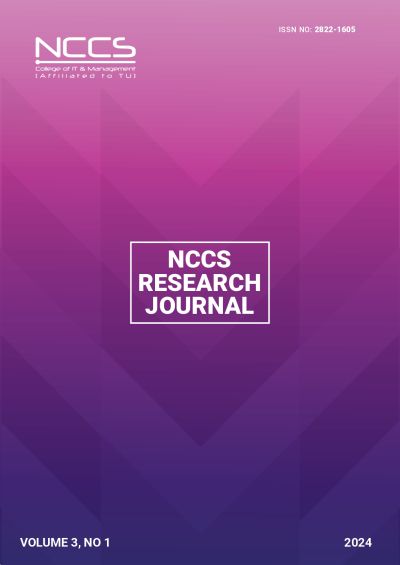Financial Literacy of Women: Insights from Fair-Trade Craft Producers, Kathmandu, Nepal
DOI:
https://doi.org/10.3126/nccsrj.v3i1.72333Keywords:
education, economic empowerment, financial literacy, fair-trade, household decision makingAbstract
The study emphasized on the critical role of fair-trading practices in promoting women’s economic empowerment in the handicraft sector of Nepal. The aim of this study is to assess the financial literacy of women working in fair trade activities led by Association for Craft Producers. This study anchored on human capital theory. Methodologically the paper looks at the phenomenon objectively and employed scientific methods to generate knowledge. For this, natural data were gathered through administered self-questionnaires from 101 employed women involved in fair-trade economic ventures under association of craft products in Kathmandu valley including home-based and in-house producers. Descriptive statistical tools, such as frequency distribution, tabulation, percentage and diagrams were used for data analysis. The finding indicate that that financial literacy positively affects economic entrepreneurship, employment opportunities, household decision making process, and overall women economic empowerment. This paper has approved the notion of both empowerment and capability approach to development. For women economic empowerment, the supporting key factors such as, entrepreneurship, employment, training, educating, family support, and organizational backing can escalate the financial literacy and economic empowerment. Acquiring the essential skill, training, knowledge, and support in terms of financial issues enable women to meet their socio-economic needs and influx the individual capacity. The finding could be very useful to planners, policy makers, and women centric development practitioners to escalate the financial knowledge and support the women economic empowerment. This study suggests subsequent researchers to conduct similar issues considering longitudinal studies and comparative study between rural and urban areas.




